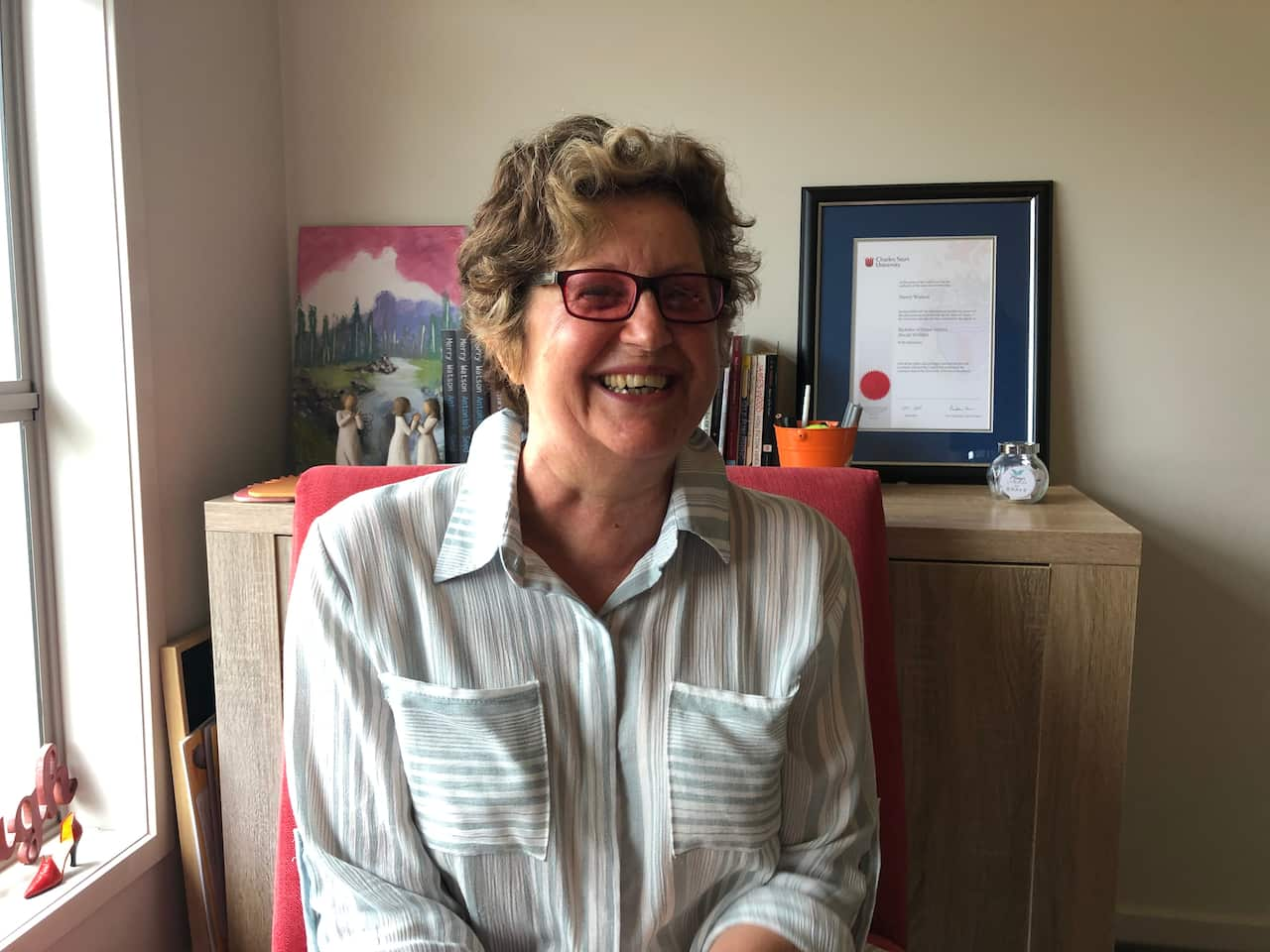Merry Watson was attending a wedding in Sydney when her chest began to feel heavy and tight.
She had previously lived in Sydney for 35 years before making a sudden relocation to Victoria to live with her mother. When she returned to her community for the wedding, she lamented her loss of closeness with the people around her in Sydney. She became overwhelmed with sadness.
“Normally I would cry if I was upset but, in that situation, I guess I knew it was inappropriate so I held it in,” says Watson, who was 57 at the time. “I felt like I was going to burst, I was really trying to supress my sadness.”
The sadness subsided but the chest pain didn’t so Watson made her way to the hospital under the impression she was having a heart attack.
“It was like an anvil was sitting on my chest,” explained Watson.
After 24 hours, it was confirmed that Watson had not suffered a heart attack, rather she was so overwhelmed by her feelings of loss that it ‘broke her heart’.
‘Broken heart syndrome’ - it's a real thing
Takotsubo cardiomyopathy, otherwise known as ‘broken heart syndrome,’ is acute heart failure resulting from physical or emotional stress.
While the condition presents like a heart attack – with symptoms of chest pains and difficulty breathing – no arteries are blocked. Instead, the primary heart muscle weakens to the extent that it can no longer pump blood effectively.
I limped along not getting any medical help because it was such a mystery.
Cases of broken heart syndrome have been triggered by physical stressors such as surgery or an asthma attack, as well as emotional stressors such as the loss of a loved one, a pet, or for Watson her sense of community.
It is believed to be one of the reasons why husbands and wives often die so soon after each other.
Watson, now 60, recalls the emergency doctor looking at her suspiciously as if she was faking her symptoms.
While takotsubo cardiomyopathy is rare, the syndrome disproportionality affects post-menopausal women. Research suggests that estrogen receptors affect the reactivity of the heart, resulting in the condition.
“These women tend to have a pretty long history of stressful events in their life,” says Dr Marlies Alvarenga, a cardiac clinical psychologist at Monash Heart Medical centre.
“They may have suffered from another mental illness in the past and then there is a triggering event that leads to the manifestation.”
Dr Alvarenga says there are a few theories to explain the occurrence: “For these women there is usually a higher than normal level of excitatory hormones, like adrenaline, in their system from stress or anxiety.”
She says as the hormone levels rise the heart becomes oversensitive, leaving it vulnerable to a trigger and consequently takotsubo cardiomyopathy.
For Watson, she was living with untreated post-traumatic stress disorder (PTSD) before her heart failure. The PTSD was a result of her 30-year struggle to receive a diagnosis for her sight and hearing difficulties.

“I limped along not getting any medical help because it was such a mystery,” says Watson.
Out of work from her poor health, her family experienced financial pressure which exacerbated Watson’s stress. Her move to Victoria was an attempt to relieve this financial burden.
“It was so traumatic for me to leave Sydney, it was so sudden, I had things in Sydney, I had a life there,” says Watson.
Treatment options
Broken-heart syndrome is often reversible with most patients recovering in three to five days. But, cardiologist Dr Julie Humphries says some severe cases can cause sudden death.
“Data produced last year suggests the mortality could be up to six per cent – which shows that this condition is not benign,” says Dr Humphries.
“And, about 10 per cent of women will have a residual ongoing reduction of heart function.”
At the moment, patients with takotsubo cardiomyopathy are treated with standard heart failure procedures, but Dr Humphries worries this is not the best course of action.
“We don’t know if they do anything to help. They do acutely, but we don’t know how to prevent it from happening again.”
Along with further research into treatment, Dr Humphries believes a register should be established in Australia to understand the amount of people the condition effects.
Watson says since her hospitalisation, she has reshaped the way she handles her mental health.
“My entire family couldn’t reconcile that I had such grief to cause a heart incident,” she says.
“I wasn’t previously a supportable person, I was trying to hold it all together alone... now I allow myself to be comforted.”
Insight is Australia's leading forum for debate and powerful first-person stories offering a unique perspective on the way we live. Read more about Insight
Have a story or comment? Contact Us


